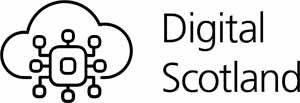
Extra spending on our health service does not appear to be addressing its longer-term challenges. Scotland’s NHS secured an additional GBP 730m - a 5.5 per cent increase - in funding in the Scottish Government’s last annual budget. The BMA has, however, claimed this will make little difference in addressing the growing gap between resources and patient demand.
If the NHS is to tackle this issue and make the most of its annual health service spending (which already amounts to GBP 13.9 billion, a third of Scotland’s GBP 41 billion budget for 2018-19), it will need a creative solution. Scotland’s digital sector is in a prime position to deliver that solution.
Data analysis
Part of the solution lies in the way modern technology can be used alongside the huge amount of data (both digital and hard copy) which is held by the NHS about patients and diseases. Scotland is well-placed to make the most of this data as - unlike south of the border where data is split between different English trusts - NHS Scotland holds a single pool of patient data. This larger pool of data, controlled by NHS Scotland, could be a major asset in developing new treatments, processes and efficiency improvements that could make a real difference to standards of care. |
Drug discovery
One of the fields in which NHS data can make a big difference is drug discovery. The continued rise in computing power is enabling companies to use computer modelling to speed up drug discovery and reduce costs. Companies like Exscientia, which has an office in Dundee, are already using AI and big data analysis to discover new drugs. Computer modelling can also be used to develop cheaper versions of existing drugs and find new purposes for old drugs. These developments could help the NHS get more for its money in one of the most costly aspects of its budget - purchasing drugs. NHS data has great potential to add to this drug discovery process. It provides a vast amount of data regarding diseases, treatments and their results. Modern, powerful computers are able to process and analyse this data in a way that was not possible only a few years ago. By increasing our understanding of diseases and their effects on patients, the NHS and its partners can find new treatments and improve standards of care for those patients.. |
Innovative platforms
Along with the positive impact on drug discovery, digital innovations are also benefitting NHS patients in a number of other areas. One example is Doctorlink, a new platform that provides an accessible triage element for patients. This uses an evidence-based approach to help the patient understand their health complaint and advises appropriate action, which may not always involve seeing their doctor. These innovations combined with further development of online GP surgery tools, wearable health tech (such as glucose monitors for diabetics) and health apps for treating ailments like stress and anxiety will also continue to raise care standards while driving down costs. It is no surprise we are seeing tech giants such as Google, Apple, Samsung and IBM moving into the life sciences sector. This underlines the opportunity for a digitally-driven revolution for healthcare, a development supported by both UK and Scottish Governments, which are putting increased resources towards local tech businesses. There are, however, serious issues and patient concerns around how companies use health data. |
Code of conduct on data-driven health and care technology
NHS decision-makers face the difficult balancing act of using patient data to drive innovation and raise standards of care, on the one hand, with the need to protect patient data and ensure it is not misused, on the other hand. The NHS IN England has already seen the dramatic fall-out caused by the Google DeepMind collaboration with the Royal Free NHS Foundation Trust. To help the NHS and its partner companies achieve this balancing act, the UK Government has published a Code of Conduct for data-driven health and care technology, available here. The Code is based on 10 key principles intended to enable the development of data-driven health technologies. It is important that this Code is suitably robust to allay fears and provide clarity to enable technology-enabled research collaborations to progress. If the NHS has clear guidelines on when and how it can engage with companies, it will be more comfortable with giving projects the go-ahead. An effective code will also provide commercial clarity for companies and enable them to understand how they can collaborate with the NHS. While extra funding will always be important, making better use of this NHS data and tapping into new digital technologies has the power to raise the standards and capabilities of the NHS. This has the potential to really transform the NHS and deliver dividends to the NHS and its patients. |













